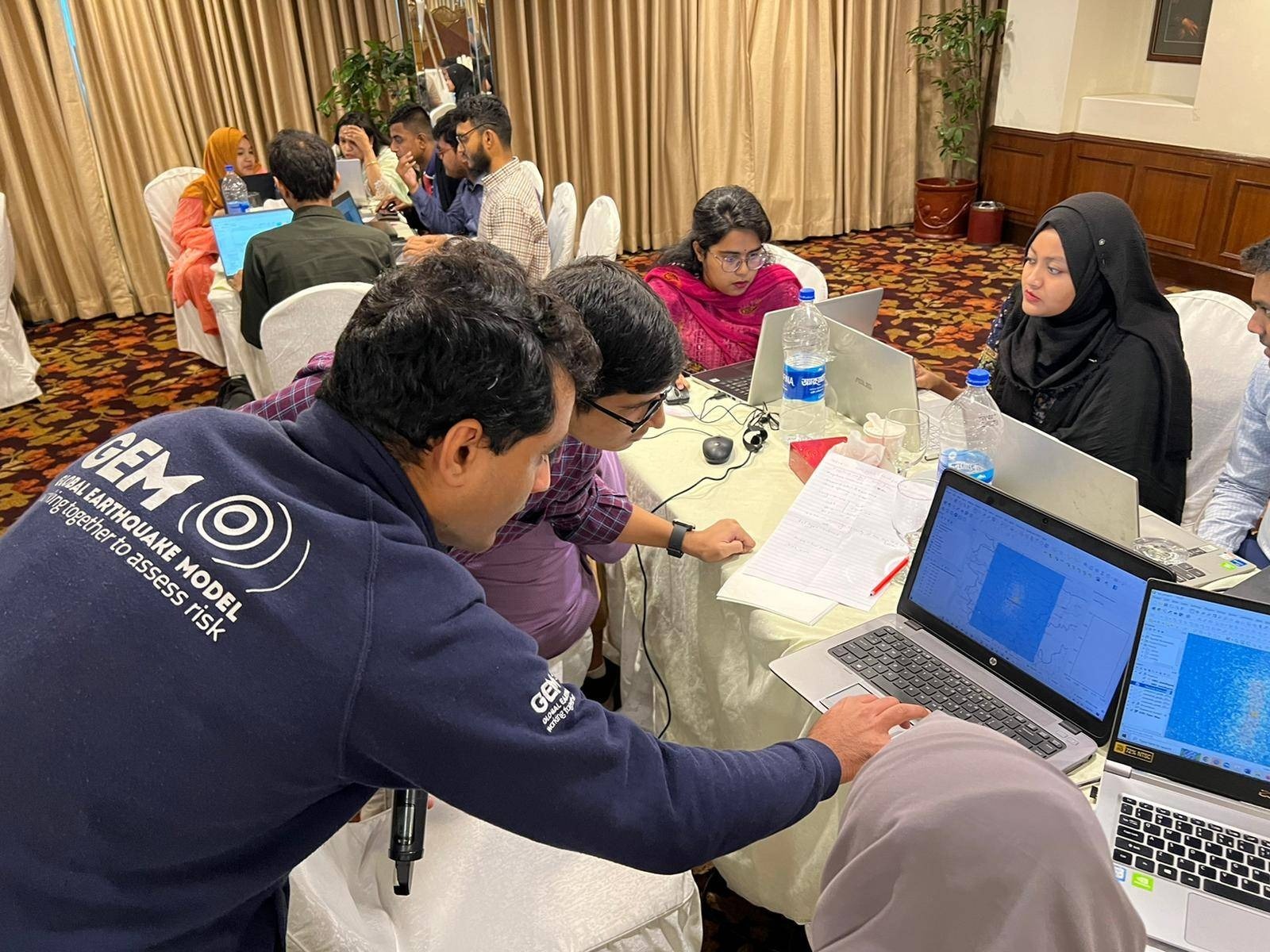
Dhaka, Bangladesh - March 7, 2024. The Global Earthquake Model (GEM) Foundation has wrapped up a week of intensive activities in Dhaka, Bangladesh, aimed at presenting the results of earthquake vulnerability and systemic risk assessment in the region. Led by Anirudh Rao, Senior Seismic Risk Modeller at GEM, the initiative was conducted in collaboration with key partners including the UN Resident Coordinator’s Office (UNRCO) Bangladesh, the United Nations Office for Disaster Risk Reduction (UNDRR), and the Ministry of Disaster Management & Relief Bangladesh.
The week began with Anirudh presenting preliminary results of the Earthquake Vulnerability and Systemic Risk Assessment project to the Ministry of Disaster Management & Relief Bangladesh. Highlighting the importance of Upazila Level Earthquake Risk Assessment for effective disaster management, Anirudh provided insights crucial for national and district-level planning.
Throughout the week, GEM shared significant findings and models with relevant ministries and government departments, including a probabilistic seismic hazard assessment model, key insights from the 2022 national population and housing census, and exposure models. Additionally, discussions also focused on the impact of disasters on gender equality, probabilistic seismic risk assessment results, and risk-sensitive land-use planning.
In parallel, GEM conducted a series of activities aimed at capacity building and knowledge sharing. This included a one-day OpenQuake workshop training for 30 students from leading universities, providing them with tools to assess earthquake risks using real data from historical events.
The initiative also saw presentations of project results to various UN organisations, highlighting the potential value in humanitarian work and disaster response efforts. Meetings with key stakeholders such as USAID, the UK’s FCDO Services, and the Directorate-General for European Civil Protection and Humanitarian Aid Operations (DG-ECHO) explored opportunities to integrate project findings into national and local disaster preparedness policies and risk financing strategies.
Anirudh remarked, "This collaborative effort isn't just about generating reports, it's about providing communities and decision-makers with actionable intelligence. As we navigate the complexities of disaster risk, we're not merely mitigating threats, we're promoting a culture of preparedness and resilience that transcends borders.”
He further added, “Each discussion, workshop, and presentation has not only contributed to Bangladesh's disaster risk reduction framework but has also set a precedent for inclusive, evidence-based approaches to global resilience challenges."
The success of the initiative was made possible by the partnership and support of the Ministry of Disaster Management & Relief Bangladesh, the UN Resident Coordinator’s Office (UNRCO), and the United Nations Office for Disaster Risk Reduction (UNDRR).
For more information on the activities, please read the UN article summarising the events here.
Together, these efforts signify a collective commitment to building resilience and ensuring the safety and well-being of all citizens in Bangladesh.
Learn more about the project: https://www.globalquakemodel.org/proj/bangladesh.
No images found.
GALLERY



VIDEO

RELATED CONTENTS







